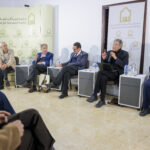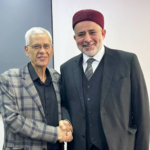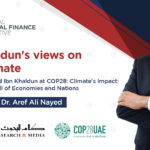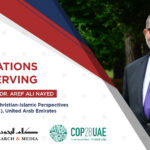Sohail Nakhooda from Kalam Research & Media delivered a keynote speech at a workshop held on 16th November 2015 by the Institute of Southeast Asian Studies (ISEAS) – Yusof Ishak Centre in cooperation with Konrad Adenauer Stiftung on the theme of “Islamic Developments in Southeast Asia”.
The one-day workshop was part of the Regional Social and Cultural Studies (RSCS) Programme at ISEAS – Yusof Ishak Institute and focused on developments in Malaysia, Indonesia and Singapore. It brought together scholars who spoke on themes such as civil society, politics and the ulama in Malaysia; law and education in Malaysia; Middle Eastern influence on Islamic institutions in Indonesia; and Middle East influence on Singapore Islamic institutions.
Scholars have recently raised concerns over Southeast Asian Muslims becoming more conservative and radicalised, while others have noted the impact of Islamic influence and politics on multicultural societies in the region. While Southeast Asian Muslims have had a history of integrating local traditions with Islamic doctrines, the dawah movement (referred to as Islamic resurgence) in 1970s, the increased ‘Arabisation’ of Muslim society, as well as visions of a caliphate in the Middle East, have change the complexion of Muslim communities and their relationship with other communities. The workshop’s aim therefore was to explore issues such as the contemporary networks and flows of students, teachers, and literature from the Middle East to Southeast Asia, and within the region; understand the evolving nature of Sharia courts, bureaucracies and civil service; and the emergence and presence of Islamic culture/politics in contemporary society as well as the reaction from both Muslim and non-Muslim communities.
In his keynote speech, Sohail Nakhooda gave an overview of key developments in the Middle East, particularly the aftermatch of the Arab Spring and the violent rise of extremist groups such as ISIS and its various offshots and its implications to regional and global security. He also discussed the negative implications to Muslim civilization of the rise of Islamist and ideological trends such as the Muslim Brotherhood, Hizb ut-Tahrir, and others, and puritanical movements such as Wahhabism and later day groups such as Ansar Al-Sharia and ISIS, which are an amalgam of ideological and puritanical trends. Nakhooda touched on the pervasive nature of such negative trends and how they systematically undermined not only stability but were also eroding all the critical components of the Islamic civilization, and the impact of this was not only being felt in the Middle East, South Asia and Europe but would also be felt in Southeast Asia.
The workshop was attended by leading scholars from Singapore, Malaysia and Indonesia and also religious leaders, diplomats and researchers. The full programme of the workshop can be seen here [link].









